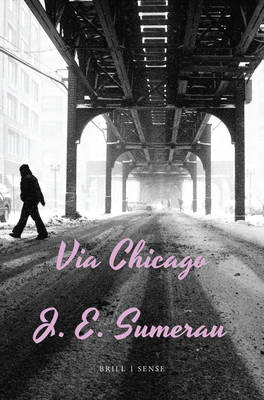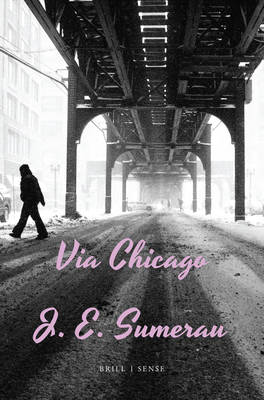
- Afhalen na 1 uur in een winkel met voorraad
- Gratis thuislevering in België vanaf € 30
- Ruim aanbod met 7 miljoen producten
- Afhalen na 1 uur in een winkel met voorraad
- Gratis thuislevering in België vanaf € 30
- Ruim aanbod met 7 miljoen producten
Zoeken
€ 198,45
+ 396 punten
Uitvoering
Omschrijving
What is a family? How do families of choice develop?
These questions permeate Via Chicago as ten people come together as a familial unit after each experiencing and (at least) beginning to recover from prior traumatic experiences. Ella and Linsk are a nonmonogamous couple who have helped one another heal and built an unconventional family together with Case, Kaisa, Reeves, Jo, Andrei, and Michelle over the course of a decade. As the novel begins, Mercury has just moved to Chicago to pursue graduate study when they begin a romantic relationship with Ella and a broader emotional engagement with the family. At the same time, Mercury is beginning to work through traumatic past experiences while Jo might have found love in the form of a new guy the family just calls Twitter Boy. As the novel progresses, we follow Mercury, Jo, and the rest of the family as each relates to their own and others' traumatic experiences and bonds together over these and other shared aspects of their lives, desires, and goals.
Via Chicago could be utilized in the teaching of sociology, families, romantic relationships, gender, sexualities, geography, urban studies, LGBTQIA studies, polyamory, trauma recovery, or narrative courses, or of course, it could be read entirely for pleasure.
These questions permeate Via Chicago as ten people come together as a familial unit after each experiencing and (at least) beginning to recover from prior traumatic experiences. Ella and Linsk are a nonmonogamous couple who have helped one another heal and built an unconventional family together with Case, Kaisa, Reeves, Jo, Andrei, and Michelle over the course of a decade. As the novel begins, Mercury has just moved to Chicago to pursue graduate study when they begin a romantic relationship with Ella and a broader emotional engagement with the family. At the same time, Mercury is beginning to work through traumatic past experiences while Jo might have found love in the form of a new guy the family just calls Twitter Boy. As the novel progresses, we follow Mercury, Jo, and the rest of the family as each relates to their own and others' traumatic experiences and bonds together over these and other shared aspects of their lives, desires, and goals.
Via Chicago could be utilized in the teaching of sociology, families, romantic relationships, gender, sexualities, geography, urban studies, LGBTQIA studies, polyamory, trauma recovery, or narrative courses, or of course, it could be read entirely for pleasure.
Specificaties
Betrokkenen
- Auteur(s):
- Uitgeverij:
Inhoud
- Aantal bladzijden:
- 224
- Taal:
- Engels
- Reeks:
- Reeksnummer:
- nr. 33
Eigenschappen
- Productcode (EAN):
- 9789004432956
- Verschijningsdatum:
- 2/04/2020
- Uitvoering:
- Hardcover
- Formaat:
- Genaaid
- Afmetingen:
- 155 mm x 235 mm
- Gewicht:
- 459 g

Alleen bij Standaard Boekhandel
+ 396 punten op je klantenkaart van Standaard Boekhandel
Beoordelingen
We publiceren alleen reviews die voldoen aan de voorwaarden voor reviews. Bekijk onze voorwaarden voor reviews.








